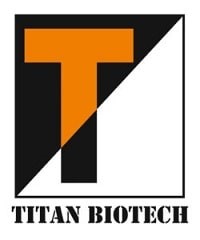Composition
Ingredients | Gms/Ltr. |
Potato starch | 30.000 |
L-Asparagine | 3.600 |
Potassium phosphate mono | 2.400 |
Magnesium sulphate | 0.240 |
Magnesium citrate | 0.600 |
Malachite green | 0.400 |
* Dehydrated powder , hygroscopic in nature, store in a dry place in tightly – sealed containers 25°C and protected from direct Sunlight.
Instructions for Use
Dissolve 37.24gms in 600ml distilled water containing 12 ml glycerol. Gently heat to dissolve the medium completely. Sterilize by autoclaving at 15 psi (121°C) for 15 minutes. Prepare 1000 ml of whole egg emulsion collected aseptically. And mix egg and base and Gruft Mycoba cterial supplement (TS 047, if desired) gently to obtain uniform mixture. Distribute into sterile screw capped tubes. Place tubes i n a slanted position inspissator water bath at 85°C for 45 minutes.
Appearance: Pale bluish green coloured, opaque smooth s lant
pH ( at 25°C): 7.0 ± 0.2
Principle
LOWENSTEIN JENSEN MEDIUM BASE is used for isolation and cultivation of Mycobacterium species. Medium base is a relatively simple formulation that requires supplementation in order to support the growth of mycobacteria. Egg-based media contain whole eggs or egg yolk, potato starch, salts and glycerol and are solidified by inspissations . These substances provide fatty acids and protein required for the metabolism of mycobacteria. The coagulation of the egg albumin during sterilization provides a solid medium for inoculation purposes. Jensen modified Lowenstein medium by altering the citrate and phosphate contents, eliminating the congo red dye and by increasing the malachite green concentratio n. Gruf t further modified L. J. Medium with t he addition of two antimicrobics to increase selectivity. Penicillin and Nalidixic acid along with malachite green prevents growth of the majority of contamin ants surviving decontamination of the specimen while encoura ging earliest possible growth of Mycobacteria. Do not add glycerol to the medium if bovine or other glycerophobic strains are to be cultured. Malac hite green serves as an inhibitor and also as pH indicator. Formation of blue zone indicates a decrease i n pH by gram -positive contaminants (e.g. Streptococci) and yellow zones of dye destruction by gram -negative bacilli. Routinely cultivation is carried out aerobically at 35°C.
1. Lowenstein-Jensen Medium Slants and Bottles:
- Inoculation of samples with the cu lture
- By using sterile disposable 0.01ml calibrated loops, inoculate the slants or bottles using M ycobacterial cultures prepared as discussed in instructions for use .
- Keep the cultures in an upright position for 5 min at room temperature
- Measure (mm) the height of the column of bubbles above the surface of the medium.
- Incubate containers with loosened caps at 35 ± 2°C in an aerobic atmosphere supplemented with carbon dioxide.
- Examination of tubes or bottles observed after 7, 14 and 2 1 days for growth, selectivity and pigmentation.
- Inoculate butt surfaces with a sterile disposable 0.01 ml inoculating loop using cultures prepared as described above.
- Incubate tubes with loosened caps at 35 ± 2°C in an aerobic atmosphere supplemented with carbon dioxide.
- After 14 days incubation, to each culture add 1.0 ml of Polysorbate 80 – peroxide mixture.
For preparing: 10% Polysorbate 80 prepared as follows:
** Mix 10ml Polysorbate 80 with 90ml purified water. Autoclave at 121°C for 10 min.
** 30% hydrogen peroxide. Store in a refrigerator.
Interpretation
Cultural characteristics observed after inoculating (10 3 CFU/ m l), in the presence of 5 -10% CO2, with added egg emulsion base, after incubation at 35ºC for 21 days.
Microorganisms | ATCC | Growth with Gruft Supplement | Appearance of colony |
Mycobacterium avium | 25291 | Luxuriant – good | No pigment ( or colourless colonies) |
Mycobacterium gordonae | 14470 | Luxuriant – good | Yellow – orange colonies |
Mycobacterium kansasii | 12478 | Luxuriant – good | Photo chromogenic, smooth to rough |
M. tuberculosis H37RV | 25618 | Luxuriant – good | Granular , warty, dry friable |
References
- Murray P. R., Baron E. J., Jorgensen J. H., Pfaller M. A., Yolken R. H., (Eds.), 8th Ed., Manual of Clinical Microbiology, ASM, Washington, D.C. (2003).
- Lowenstein E., Zentralbl. Bakteriol. Parasitenkd. Infektionskr. Hyg. Abt. 1 Orig., 120:127. (1931).
- Jensen K. A., Zentralb. Bakteriol. Parasitenkd. Infektionskr. Hyg. Abt. I Orig., 125:222. (1931). 4. Gruft, 1971, Health Lab. Sci., 8:79. (1932).
5. Gruft, Am. Rev. Respir. Dis., 88:412. (1963).
- MacFaddin J. F., Media for Isolation -Cultivation -Identification -Maintenance of Medical Bacteria, Vol. 1, Williams and Wilkins, Baltimore. (1985).
- Forbes B. A., Sahm A. S. and Weissfeld D. F., Bailey & Scotts Diagnostic Microbiology, 10th Ed., Mosby, Inc., St. Louis, Mo. (1998).
- Cernoch P., Enns R., Saubolle M. and Wallace R., Cumitech, 16A, Laboratory Diagnosis of the Mycobacterioses coord , Ed., Weissfeld , ASM, Washington, D. C. (1994).
- Isenberg, (Ed.), Clinical Microbiology Procedures Handbook, Vol. I, ASM, Washington, D. C. (1992).




Avaliações
Não há avaliações ainda.